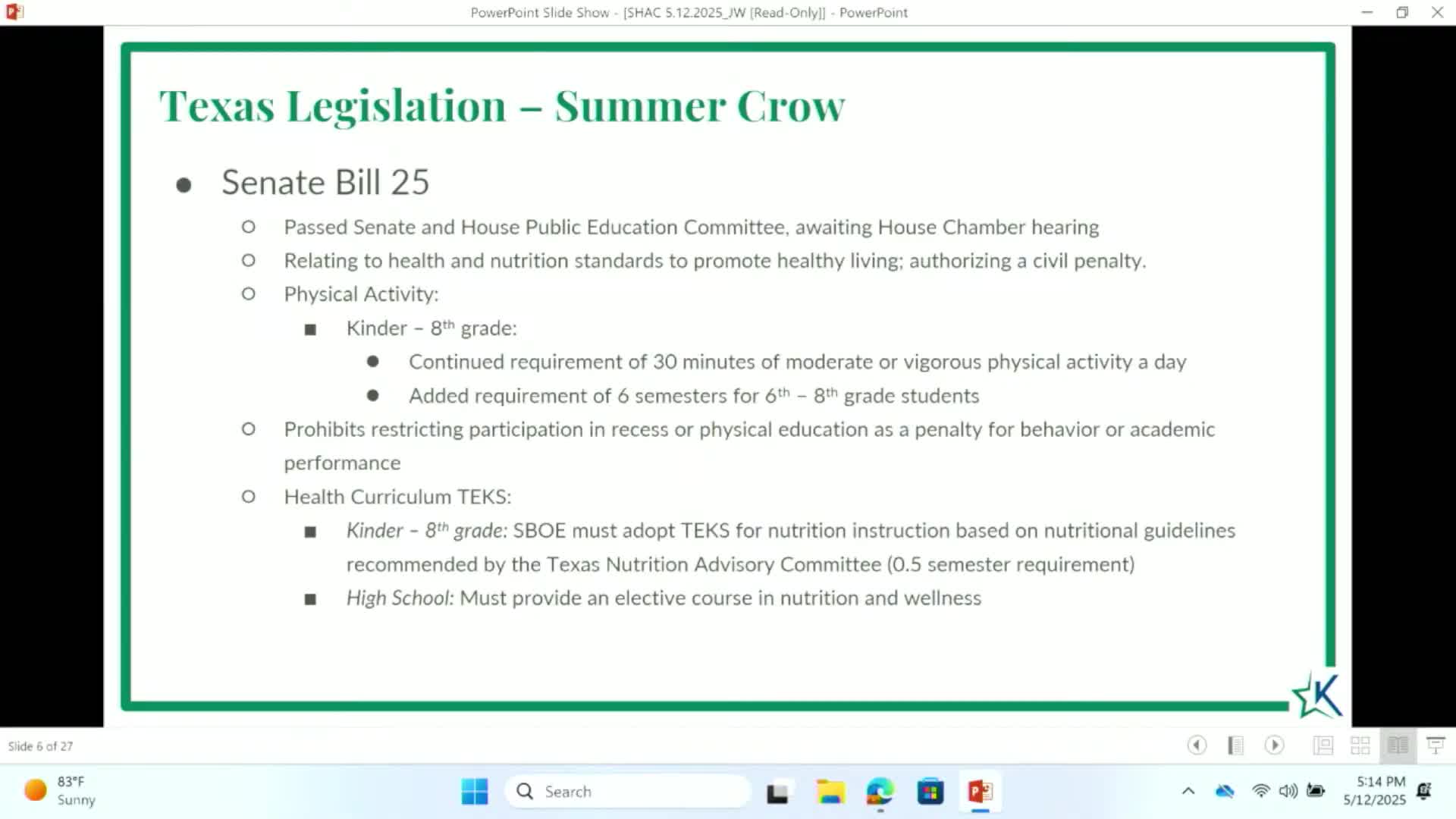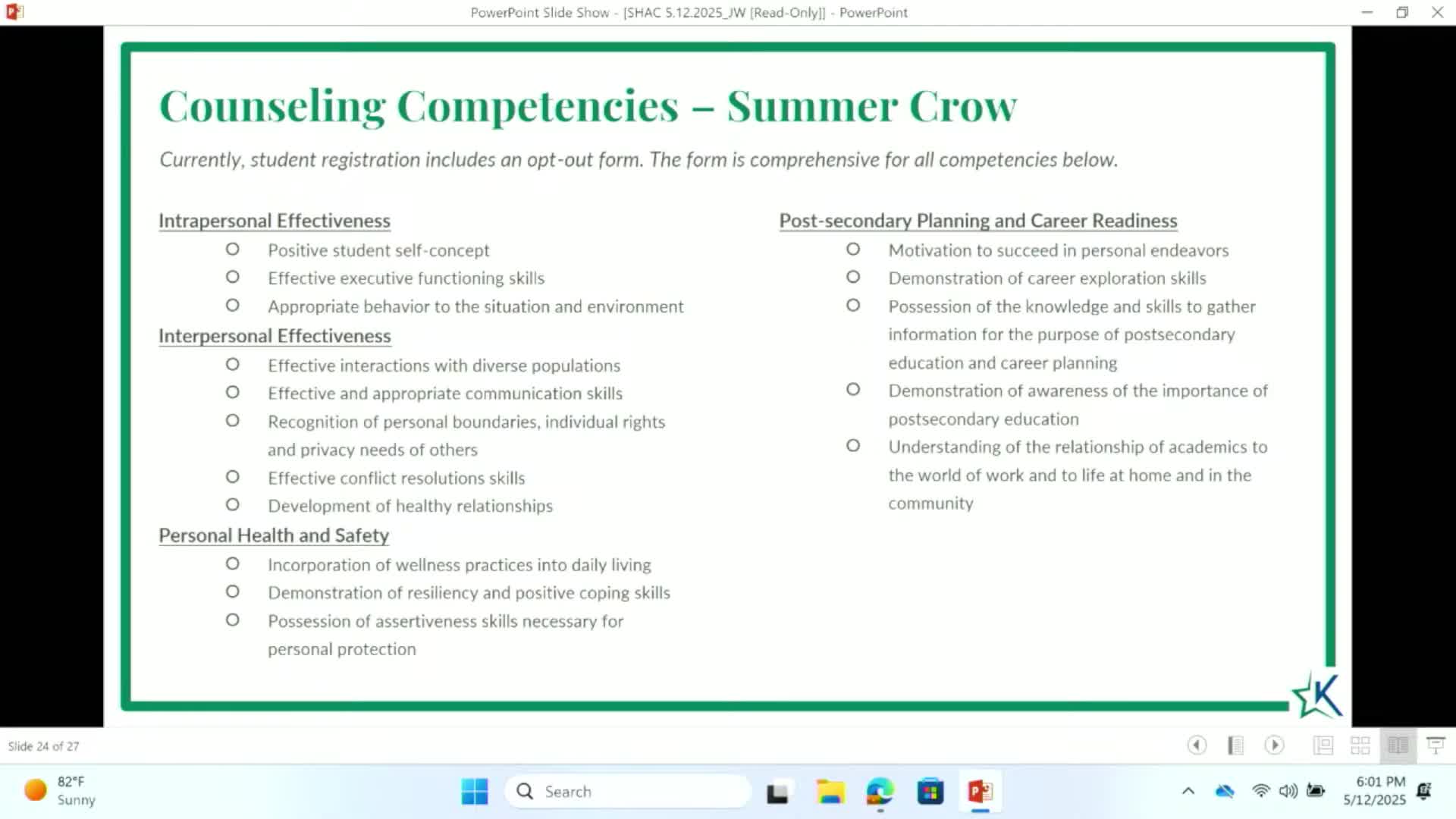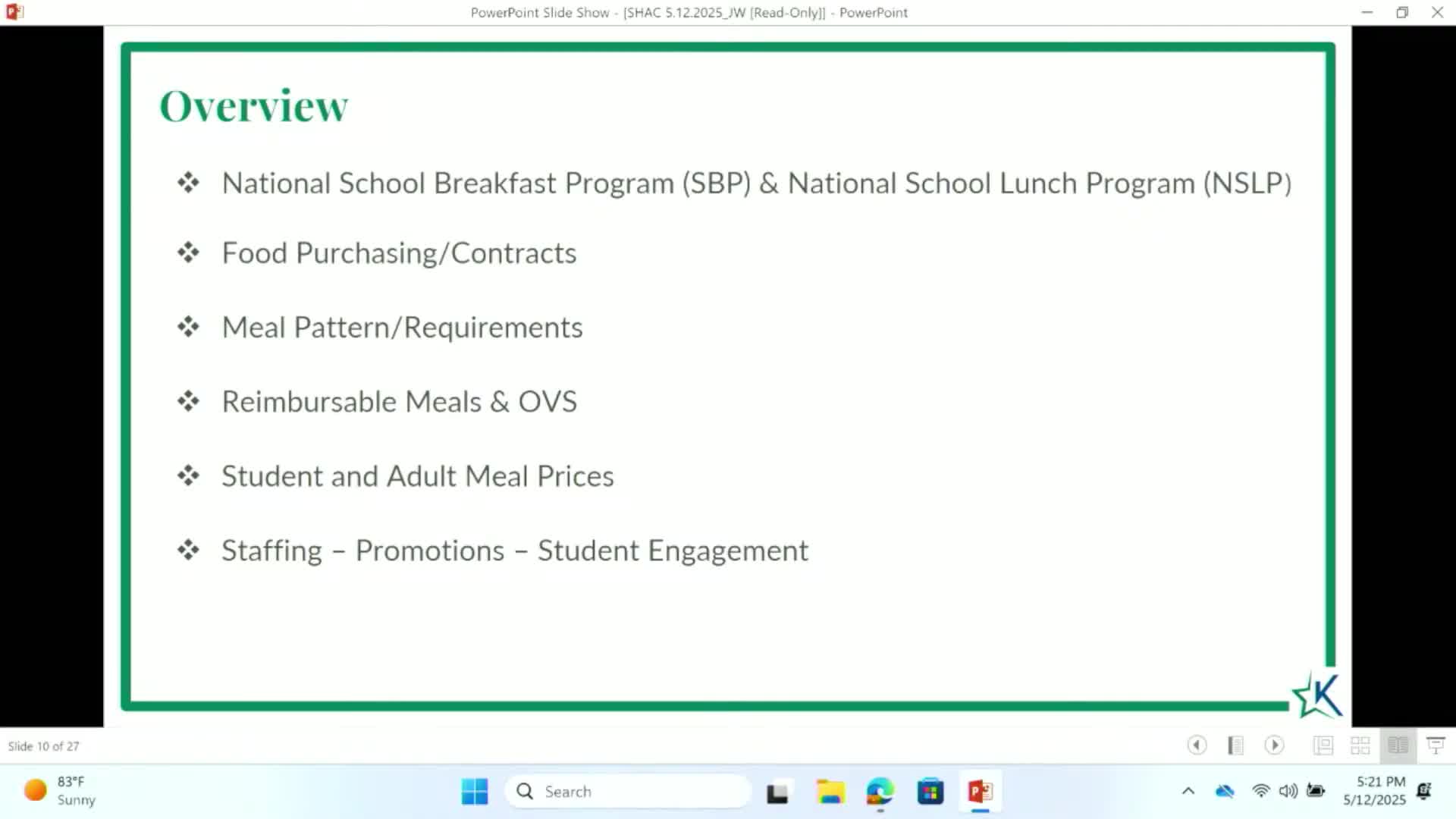Article not found
This article is no longer available. But don't worry—we've gathered other articles that discuss the same topic.

SHAC reviews three Texas Senate bills that could change nutrition, activity and counseling rules in Keller ISD

Parents and SHAC debate separating counseling opt-out from college-and-career activities in Keller ISD

